"Local events in Preston - the Mayor's procession; Christmas shopping; pot fair; Royal Infirmary rag; egg rolling in Avenham Park; dog show; and a horse fair" (NWFA Online Database).
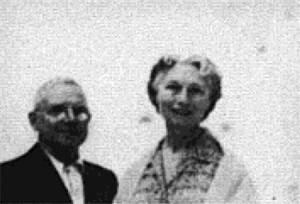
"The Los Angeles Cinema Club has captured the story of one lonely mother who finds the younger generations preoccupied. On one of her afternoon visits to the park she makes an acquaintance, followed by more frequent meetings. Soon, the children break this up by finding a home for mother. The end is a happy one." PSA Journal, Nov. 1958, 46.
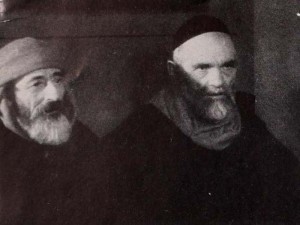
"Lot, two reels 35mm., produced by Dr. James S. Watson, jr., ACL, and Melville Webber, may be said to be as much of an advance in motion picture technique over Fall of the House of Usher, their earlier production, as that film was an advance over standard professional cinematography. There are very few cinematographers in the world who have devoted the whole of their efforts to experimentation with the motion picture as an art medium and, in the opinion of Movie Makers' staff, there is none who has achieved the signal results of these two. Lot represents a complete innovation, not only in the treatment of the theme as a whole, but in the cinematic interpretation of the sequences. In it, the familiar tools of the advanced cinematographer, multiple exposure, trick printing, complicated lighting, symbolism, models and models in combination with life size sets are used to secure an entirely new and very beautiful cinematic representation of the Biblical story. In Lot these two amateurs have mastered the world of illusion of the motion picture but, in doing so, they have produced more than a mere novelty; they have founded a new cinematic art." Movie Makers, Dec. 1932, 538.
An avant-garde retelling of the biblical story of Lot and the destruction of Sodom (from the Book of Genesis, chapters 17-19), this film was controversial for its nudity and homoerotic overtones. (D.J. Duffy)
"In Love Apples, Henry Hoke presented what is, so far as Movie Makers records show, the first approach to filming the hobby and preoccupation of an entire family. Unquestionably the Hoke family likes tomatoes and, something less commonly encountered, it is willing to work to produce them. Mr. Hoke's Kodachrome film lets us see the entire family group at work planting, weeding, watering and picking — especially picking, because Mr. Hoke makes quite a cinematic point of eager hands reaching for tomatoes in and out of season. The continuity is active and full of humorous touches, with a shade too great an emphasis on camera tricks for their own sake; the photography is adequate and often provides much screen beauty. Above all, this film has a unity which, added to its unusual motive, brings it into the Honorable Mention class." Movie Makers, Dec. 1936, 549-550.
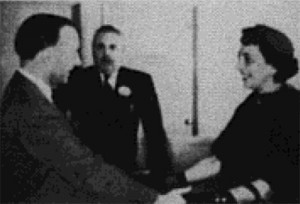
"The Toronto Movie club has cast several of its members in a comedy involving the boss, his daughter, and two bond sales-men. The usual conflicts-the daughter's choice finds some difficulty with her father. And there are two gunmen looking for easy money. A different touch of the old story, well paced, with a fine cast who move about with comic realism" PSA Journal, Nov. 1958, 46.
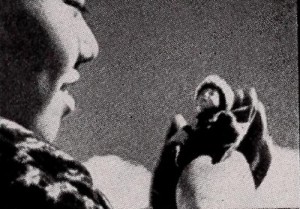
"Possibly the most outstanding features of Okamoto's work were his photography and composition. Many regarded his photography as the finest that had ever been put on motion picture film." American Cinematographer, Dec. 1932, 7.
"Second prize was awarded to Tatsuichi Okamoto of Matsuyama, Japan. Title of his single reeler is 'Lullaby,' which depicts the emotions of a mother singing to her child." Variety, Dec. 13, 1932, 2.
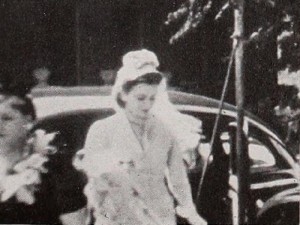
"Although Made in Heaven, by Jesse Geisler, is a carefully planned and sequenced film of the preparations for a wedding and the wedding itself, it gives the effect of complete realism, tinctured with good humor and the joy of life. The preparations are gay, as the bride's friends help her to dress, producing "something old, something new, something borrowed and something blue" in the traditional way. The Jewish orthodox ceremony is handled with simple dignity and then, with the section presenting the wedding party, the film resumes its lighter treatment. Transitions from one sequence to another are excellently handled, and the scenes of the wedding party represent an outstanding accomplishment, for it is not easy to make good movies at such an occasion." Movie Makers, Dec. 1943, 478.
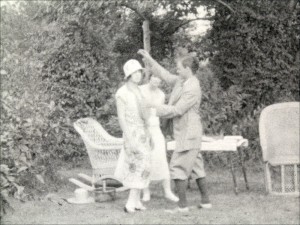
"Mag the Hag" is a 1925 amateur fiction film shot and edited by Hiram Percy Maxim (1869-1936), founder of the Amateur Cinema League. It is one of the earliest amateur fiction films shot on 16mm in Northeast Historic Film's collections. It features Maxim's daughter, Percy Maxim Lee, in the lead role of Percy Proudfoot. oldfilm.org
"Magic Boy received the special citation for combining animation with live action. A small boy is watching a comic book or drawing board and what he sees comes to life before him. Whether Filmer Falco is a real life artist or not, he did a good job with the cartooning, but a really superb job in combining the boy with the animated character" PSA Journal, Sept. 1964, 51.
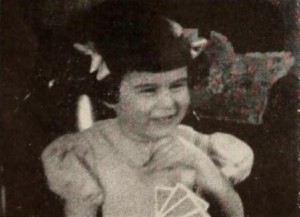
"Two children and a simple plot are ideal ingredients for a family film story. In Magic Stairway, Margaret and Harlan M. Webber have used this combination to develop a lively and natural movie of their son Roy and their daughter Janet. Roy longs for a punching bag for Christmas, but he feels that it is a too expensive gift to expect from his parents. He decides to earn the money for it with the help of his young sister. In beautifully filmed sequences, the children are shown melting castoff candles and remolding them into delicate shapes, to be sold to the neighbors. The profits mount slowly until the desired goal is reached. Then tragedy strikes when Janet accidentally breaks one of Mother's treasured teacups. The direction and cutting in this sequence are particularly skillful, as each person's reaction to the broken cup is registered. All is harmony on Christmas morning when Mother's gift from the children (bought with the punching bag money) is revealed as a replacement of the broken treasure. Needless to say, the children fare handsomely, with the punching bag starring as the climactic present. Faultless camera work and intelligent direction of the children contribute to make this film far above the average." Movie Makers, Dec. 1947, 514.
Total Pages: 39